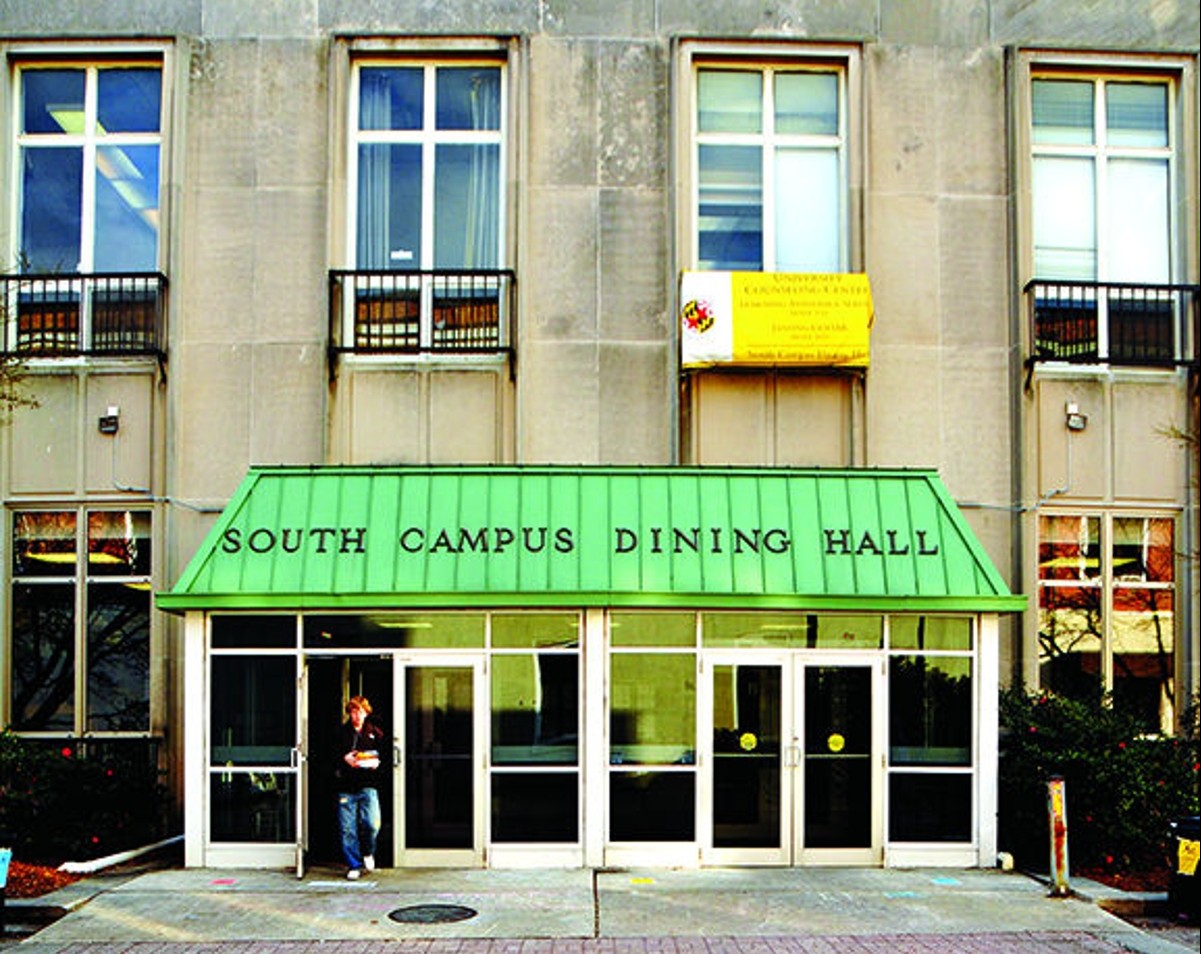This newspaper’s editorial board published an editorial last week about improvements made by Dining Services to create a new dining system that will go into place next semester.
It is true that before the end of the semester, many students will have exhausted all of their dining points while many more will be frequenting Adele’s or loading their carryout containers, feeling obligated to spend the rest of their dining points.
It is also true that by the end of this semester, students who still have points left will be taking out their IDs, willing to lend a swipe to their prodigal friends and schoolmates, which really is not a bad thing.
The University of Maryland plans to abolish the current dining point system and replace it with all-you-care-to-eat buffet-style dining. Dining Services implemented this change for a variety of reasons. Among them is the illogical belief that conforming to the dining systems offered at other Big Ten Conference schools will magically increase student satisfaction. Indeed, I could argue that in order for a buffet to satisfy its customers, it needs to serve good food, but the quality of food at this university can be debated another time.
Dining Services’ chief argument revolves around the value of community. While eating with the people you live with certainly fosters a sense of community, it only does so with the people you already know, and it should not be forcibly imposed. More so, consider what truly builds a college community. It is constructed from our interactions with one another in classes, extracurricular activities and life as students on this campus. Our community is built when we share our ideas in classroom discussions, meet people with similar interests in the clubs we join or go out at night with our friends. It is not merely from eating at the dining halls.
I believe the most compelling argument for the new system is how it will, as a result of eliminating the carryout option, dramatically reduce the amount of waste created by the dining halls. It’s a very admirable ambition, but considering the alternatives, it’s ultimately not worth the inconvenience. In many ways, carryout is a necessity when students are in a rush to class, don’t have the time to eat, or just want eat their food while watching Netflix or doing coursework. There are better ways to go about eliminating dining hall waste. We already have reusable OZZI boxes and FreeFills cups. Perhaps instead of inconveniencing thousands of students by abolishing the carryout option altogether, we could have just eliminated the disposables and forced those who take their food out to use the reusable options.
Additionally, the new base dining plan will take away the Terp Bucks that all students on standard dining plans currently enjoy. On-campus convenience stores accept Terp Bucks for not just a large selection of snacks but also school and hygiene supplies, which are essential to students living away from home.
Above all, the new system creates many problems. The editorial board acknowledged that among these are inconveniences caused by both eliminating carryout and the buffet, which discriminates against anybody without a dining plan. This affects not only the commuters who are very much a part of this school’s community, but also our outside guests who come here for sporting events or to visit friends. I strongly disagree that this drawback isn’t enough by itself to condemn the new system.
But putting the welfare of commuters and guests aside, I wonder how Dining Services plans to meet the demand of students who live here on this campus. All students who own or have owned a dining plan are too familiar with the crowded eating areas and painfully long lines during peak hours at the diners. If the diners are so overcrowded when we allow students to carry their food out, what will happen when students are forced to eat inside? Even if half of the traffic on North Campus is directed to 251 North — which will hopefully be open all day now — this wouldn’t solve the problems of students who live or have classes on the other side of campus.
The dining point system we have in place is not perfect, but the new all-you-care-to-eat system presents problems even more critical than the ones we have right now. This new system will be difficult to adapt to, and I am interested to see how Dining Services plans to deal with these issues.
William An is a freshman finance major. He can be reached at willandbk@gmail.com.



